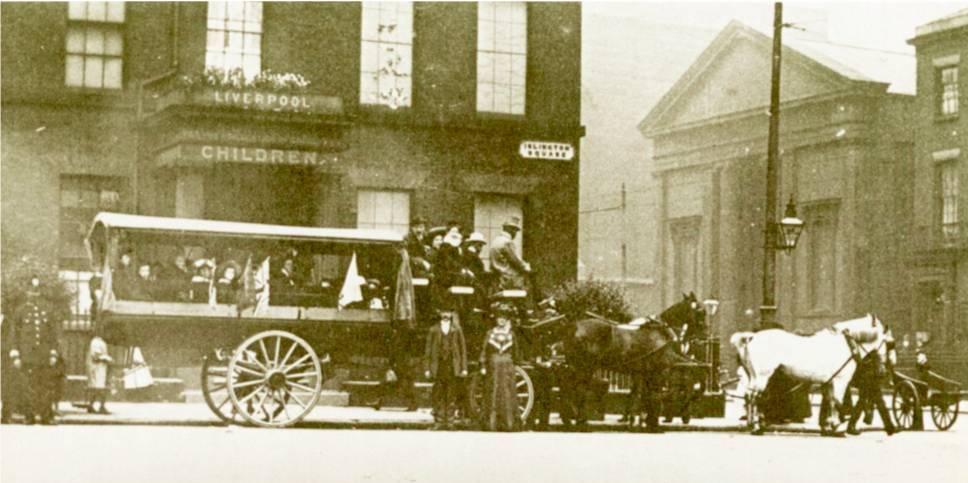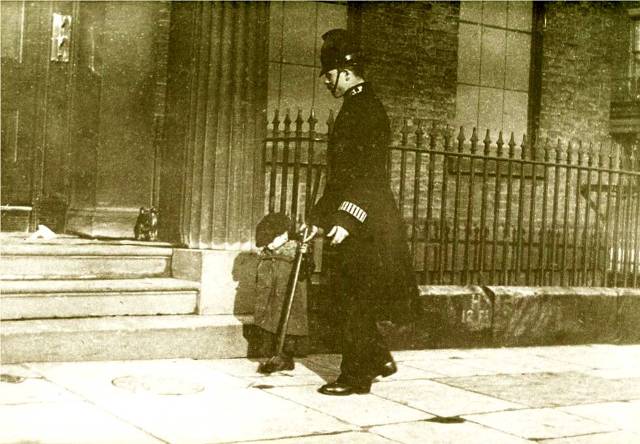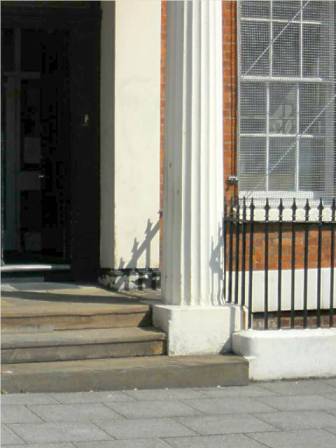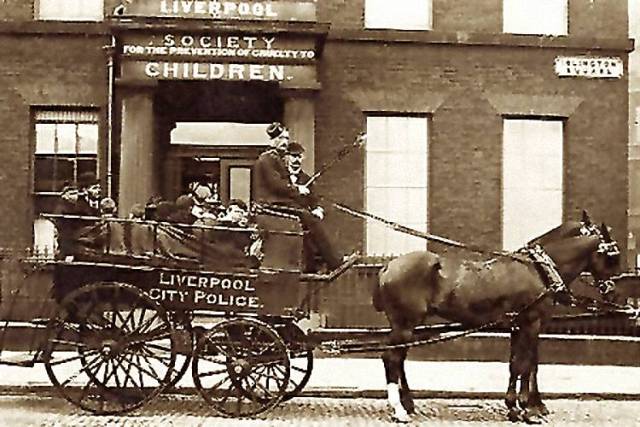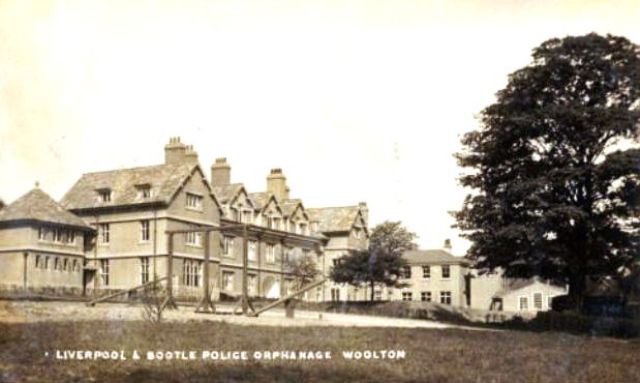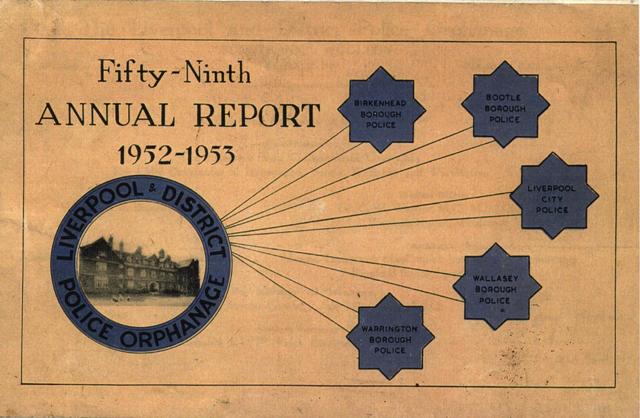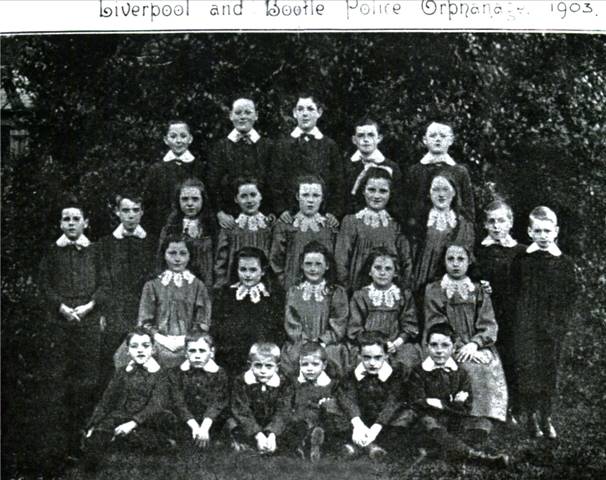MEMORIES
On Sunday 18th February 1962 I called for my best friend, Ron Brown, a constable in Liverpool City Police, to go for a pre-arranged drink. He told me he was unable to go as he had swapped shifts with a colleague and was now on night duty. We agreed to meet up the following Wednesday when he would be rest day.
In the evening of Monday 19th February 1962 I bought a copy of the Liverpool Echo and there was a photo of Ron on the front page. He had been killed on duty responding to an anonymous, believed hoax call, that burglars were on the roof of a garage, Endfields of Anfield, off Breck Rd. Athletic type that he was, Ron climbed onto the fragile roof and whilst conducting a search, fell through, falling 30 feet to the ground. He was dead on arrival at hospital and was later buried in West Derby cemetery.
In 1972 I joined Liverpool and Bootle Constabulary and my first beat was in the Croxteth area where West Derby cemetery is situated and I made a point of visiting his grave.!
The headstone had been badly vandalised. After that, I regularly walked
through the cemetery to and from Lower Lane police station and my beat.
One day I found two 19 year olds playing football in the cemetery using two of the headstones as goal posts. I took their names and addresses and told them I would be summoning them for playing football in a public cemetery. I wasn’t sure if there was such an offence.
On returning to the station I pored through one of the law books in the
inspectors’ office and found the Cemeteries Clauses Act 1847 which expressly forbade the playing of games in a public cemetery. That was it! I put in a file of evidence and the two 19 year olds were summoned before Liverpool Magistrates Court.
They duly attended in person and due to some kind of administrative mix up, one of them appeared in No. 1 Court and the other in a different court altogether.
The outcome was that one was fined £1.00 in one court and the other fined £5.00 in another. !
So much for the equitability of the justice system.
Jim Finn!
Ret Sgt
3816
Served 1972 – 1986
The End of an Era for Esk Street/Derby Road Police Station
I joined the Merseyside Police on 31stst August, 1976. After completing Initial Probationer Training at Bruche and Local Procedure Training at Mather Avenue I was posted to “J” Division at Marsh Lane Bootle. During December I was attached to various Divisional and Sub Divisional offices, Collator, Divisional Admin Unit and Station Desks etc.
I recall being told to report for duty at Esk Street /Derby Road, Bootle Police Station for night duty I think that this was probably 4th and 5th of January 1977. I was to act as Station Keeper for these two nights. This was rather unusual as at that time I had not yet commenced patrol or carried out any duties alone.
This station had up until 1sts January 1977 been the parade Station for Officers patrolling the Bootle Dock Area. However the newly formed Mersey Docks and Harbour Police had taken over full responsibility for patrolling that on that date the Dock Area. Therefore I was the only Police Officer on duty over night. The Station was fully closed at the end of that week.
The Station was a huge barrack of a building and I remember as I did my security checks of the building thinking about the many hundreds of Police Officers and prisoners who had passed through the doors over the decades that it had been open. I understand that the station was recorded in the 1861 Census. The building appeared to creak and groan its objections as the wind and winter weather buffeted it. Or perhaps was it the fact that the Afternoon Station Keeper (a man of many years service) told me that the Station was haunted. It was a bit like being the last man on the “Marie Celeste”
I was fortunate that no member of the public called at the Police Station during theses two nights therefore my lack of experience was not tested or exposed. The only callers were the Inspector and Sergeant checking on my tea making abilities.
It was strange to think that as I was embarking on my new career, this Police Station was reaching the end of an era.
Patrick Battersby
Merseyside Police 1976 to 2006
Police Clothes
My mum and dad who started at school in 1919, used to tell me about kids in “police clothes”. In fact an old classmate of my mums, became a workmate of my dads and a family friend. He came from a very poor family and was always in “Police Clothes” They said the clothes and boots immediatly stamped the kid with “POVERTY”
Clothes consisted of a Red “Gansey”, Corduroy shorts, and pair of Boots. Never heard of the police stamp on the boots ?
Mum and dad said it was awfull being sat next to kids in “police clothes”.
They of course were not far up the social scale themselves, but having a kid in “Police Clothes” sat next to you “oh my God”. My dad, was one who was at school with no shoes most of the time. My grand parents were never that destitute to qualify for Police Clothes for the kids.
They also related the stink that came from the corduroy trousers on wet days was awfull.
I had a pair of heavy Cords from Cooksons, Old Swan, for work, in the early 60’s. On a wet day coming home on a No 10 bus, I was wondering what the smell was. You guessed it, Wet corduroy. Embarrasing as people moved away from me. Does the corduroy ever get that smell now.
Regards
Mike
Produce your appointments
I can recall arriving for night duty, 15mins before parade time, reading the various chief cons orders, plus most importantly the family away from home book, the latest stolen car numbers, court appearances etc. At the time our Sgt. was Reg Bird, one of the best, I was later to learn as the years went by.
We lined up and the parade was called to attention, the next order was Produce Your appointments I can recall standing there with truncheon whistle torch in working order three pence for the phone. Sometimes If the Inspector came on the parade he would pick up the family away from home book which was set out in beats and throw in a Joey away from home to catch you out.
How many can recall the piece of red cellophane that was issued, which when placed over the end of your torch could be used to signal danger to on coming traffic. Did the guy who suggested that get a commend?
Ron.greenwood Ret Sgt 222F
Police Orphanage
The idea for a police orphanage was first suggested in 1887. The project had the full support of the head constables of Liverpool and Manchester and Mr. Russell of West Riding, Yorkshire. Also, Archdeacon Clarke of Southport also gave help with the undertaking.
The orphanage was established as the Liverpool & Bootle Police Orphanage and the proposed financial arrangements were that each man would pay a five shillings entrance fee to the scheme and a subscription of one penny each week. The scheme was regarded as favourable given that it covered the northern counties, with no fewer than four thousand police.
The next task was to choose a suitable home and this was done in 1896 with the acquisition of Sunnybank, from Joseph Penlington’s daughter, by the Liverpool & Bootle Police Orphanage committee who purchased the estate for the sum of £2,650. The orphanage was formally opened in October this same year by the Countess of Derby. After the opening ceremony the Countess inspected the orphanage and was later presented with a gold key, made by Elkington & Co, which bore the heraldic crest of the City of Liverpool encircled with the words: Liverpool & Bootle Police Orphanage, October 1896.


